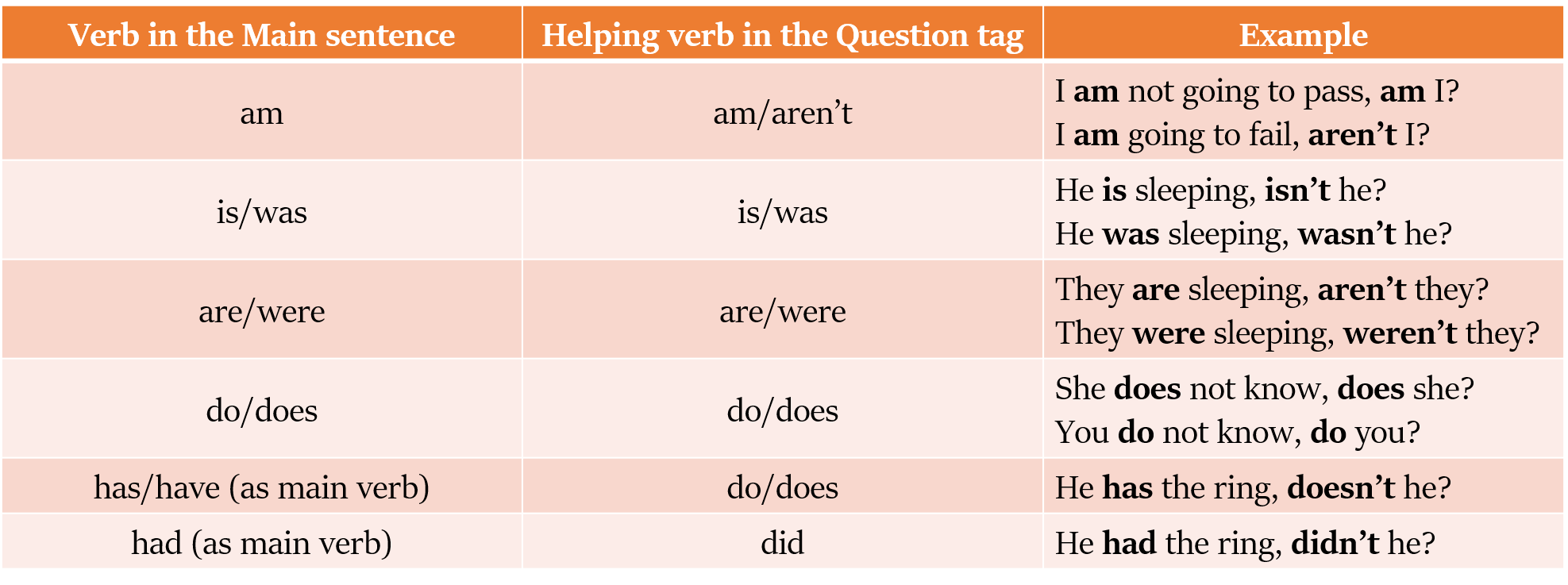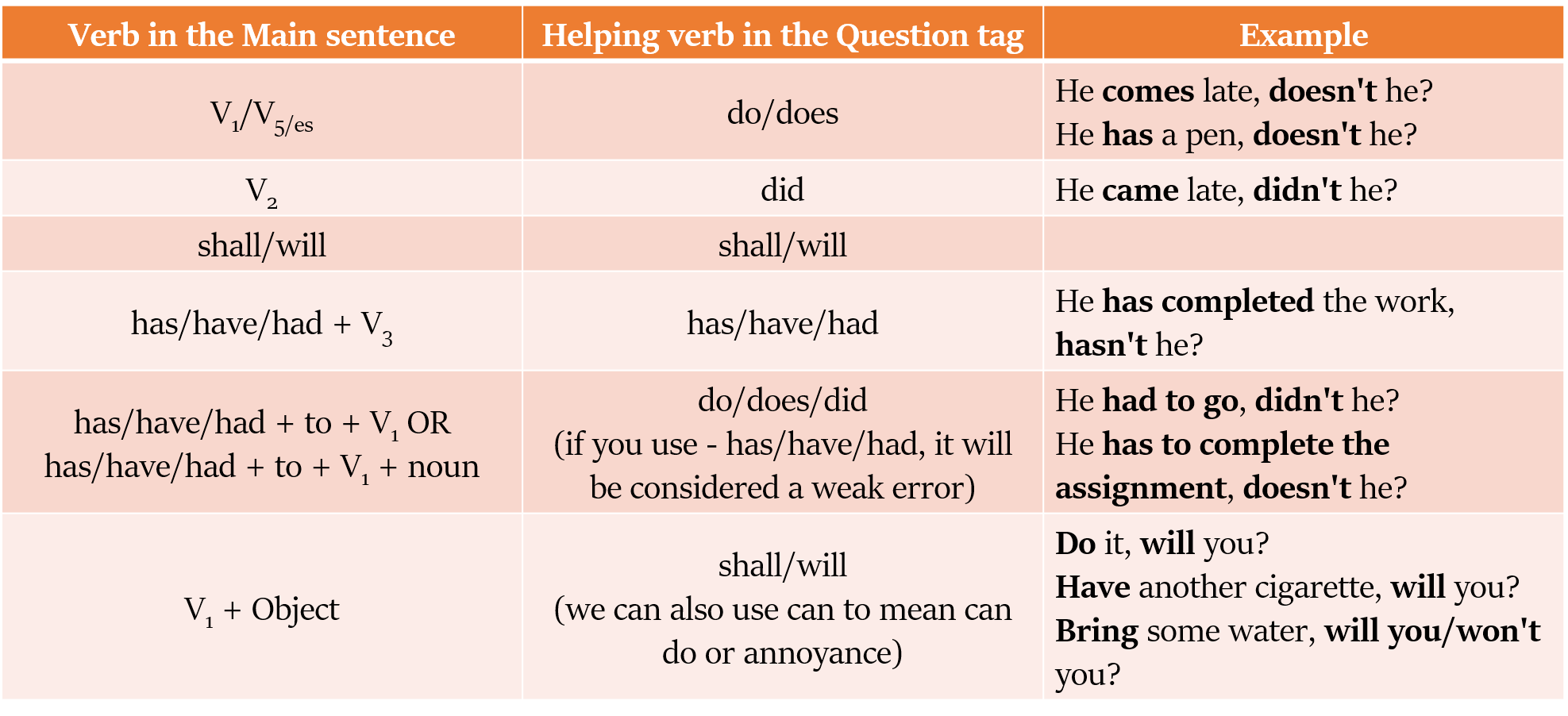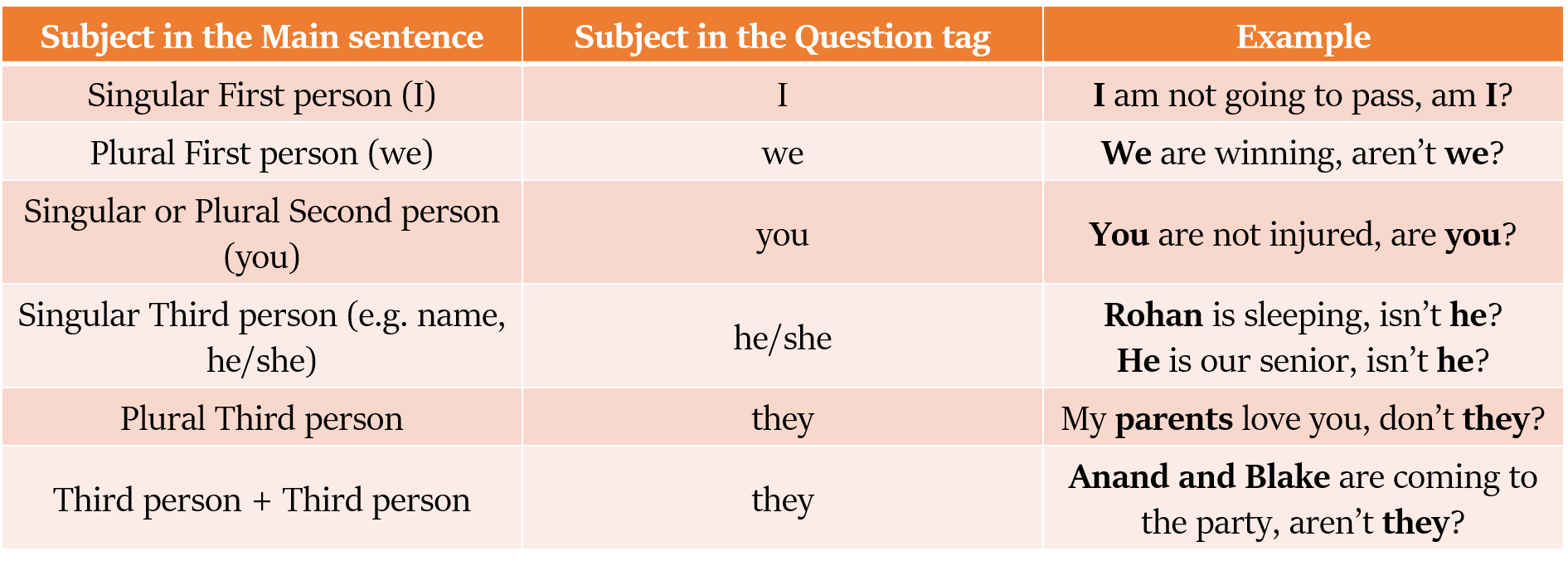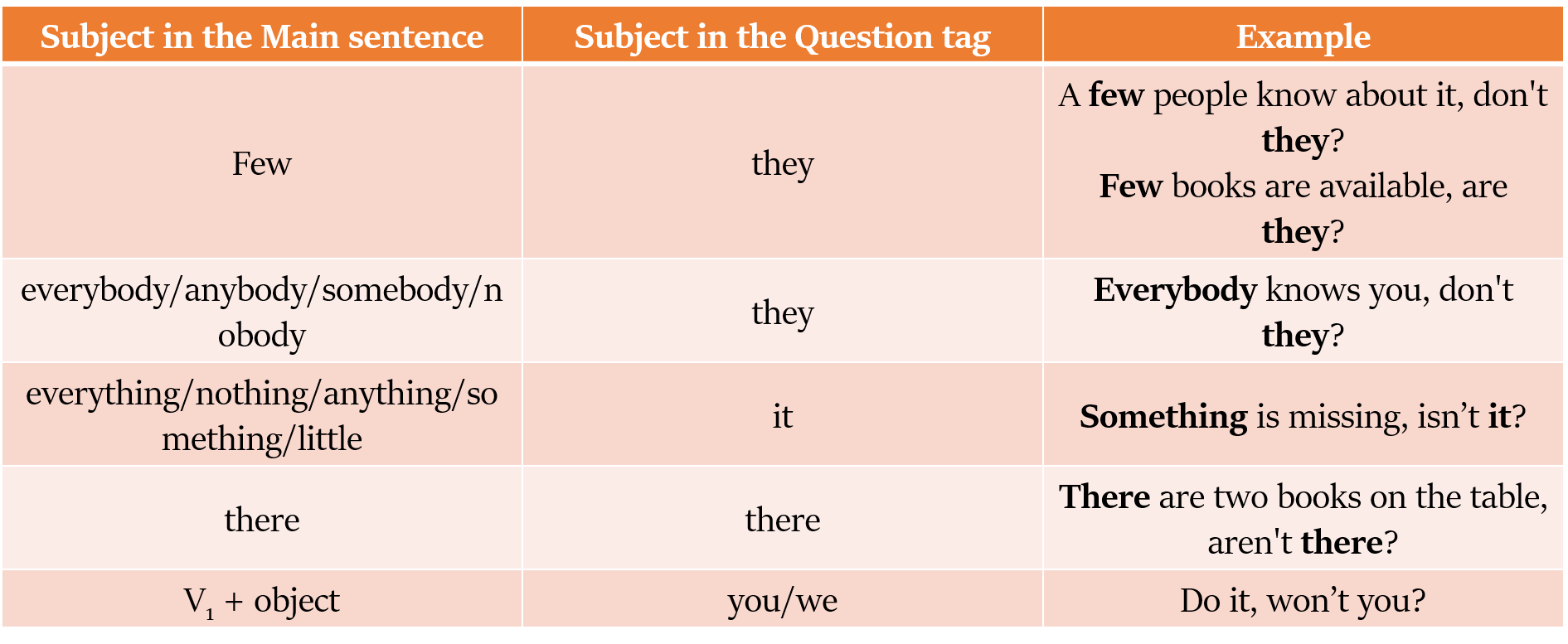Overview of Question Tags
What are Question Tags?
Question tag – It is a short question following a sentence.
We generally make a statement and ask for confirmation. That confirmation seeking part is the question tag.
It’s very cold, isn’t it? (isn’t it – question tag)
Rules for making Question Tags
Here are some of the Rules for making Question Tags.
Rule 1: Positive or Negative Question Tag
We encounter two main patterns as far as question tags are concerned:
Pattern 1
If the main sentence is affirmative (i.e. positive), the question tag must be negative.
Pattern: Helping verb + n’t + subject
You are chatting with your friends, aren’t you? (You are chatting with your friends - main sentence is positive; aren’t you – negative question tag)
It’s snowing, isn’t it?
You are bored, aren’t you?
He can play well, can’t he?
Pattern 2
If the main sentence is negative, the question tag must be affirmative.
Pattern: Helping verb + subject
You are not studying, are you? (You are not studying - main sentence is negative; are you – positive question tag)
It’s not snowing, is it?
You are not bored, are you?
He can not play well, can he?
But it’s not as simple as it sounds. There are a few exceptions to the rules given above, and some special cases. Let’s understand them.
Concept 1
If the main sentence has affirmative verb but there is presence of a negative word, we make the question tag positive/affirmative.
Examples of some negative words: hardly, seldom, scarcely, rarely, barely etc.
He is never late, is he? (never – negative word)
He hardly comes here, does he? (hardly – negative word)
Concept 2
If the main sentence begins with affirmative verb ($V_1$), the question tag will be affirmative or negative depending on the meaning of the question tag.
Pattern: $V_1$, affirmative tag or negative tag?
For confirmation – we will use negative tag
For pressure - we will use positive tag, i.e. the echo tag. (affirmative tag for affirmative main sentence)
Do it, won’t you? (won’t you – asking for confirmation)
Do it, will you? (will you – echo tag for putting pressure)
Rule 2: Contracted Negative Question Tag
In case of negative question tag, we use the contracted form of helping verb and ‘not’.
You are chatting with your friends, are not you? (incorrect)
You are chatting with your friends, aren’t you? (correct)
There is no contracted form of ‘am not‘. Rather we use aren’t in question tag.
E.g. I am supposed to jump, aren’t I?
I am going to pass, aren’t I?
Rule 3: Helping Verb in Question Tag
Let us see the helping verbs we are supposed to use in the question tag.


Rule 4: Pronoun in Question Tag
Always use pronoun (and not noun) in the question tag. (i.e. always a pronoun will be the subject of the question tag)
Which pronoun we will use in the question tag will depend on the corresponding subject in the main sentence, for which we are using that question tag.
Let us see a few rules in this regard and some examples.



Concept 1
Each, every, everyone, everybody, no one, nobody, none are singular.
That’s why we use singular verb/singular pronoun/singular adjective with them.
But we use plural verb and plural pronoun in their question tag.
Everyone has left, hasn’t he? (incorrect)
Everyone has left, haven’t they? (correct)
Concept 2
In question tag for collective nouns, we use:
- singular helping verb and singular pronoun – if it is seen as a group.
- plural helping verb and plural pronoun – if we talk about the individual members of the collective noun or if there is a difference in opinion among the members of the collective noun
The jury has taken its decision, hasn’t it? (jury – seen as a group; has – singular helping verb)
The committee are divided in their opinion, aren’t they? (committee – seen as individual members; are – plural helping verb; they – plural pronoun)
Concept 3
Let us see the question tags we use in imperative sentences.
‘won’t you’
Fetch me a beer, won’t you?‘will you?’ (in negative imperative sentence)
Do not procrastinate, will you?‘will you/would you‘ (if somebody is being offered anything, or if someone is being asked to do something)
Switch on the heater, would you?‘can’t you’ (to express impatience)
Stop talking, can’t you?

Extra Books and Tools
If you prefer to learn via books, or want some good English Grammar books for reference purposes, you may read this article which enlists some of the books recommended by us.